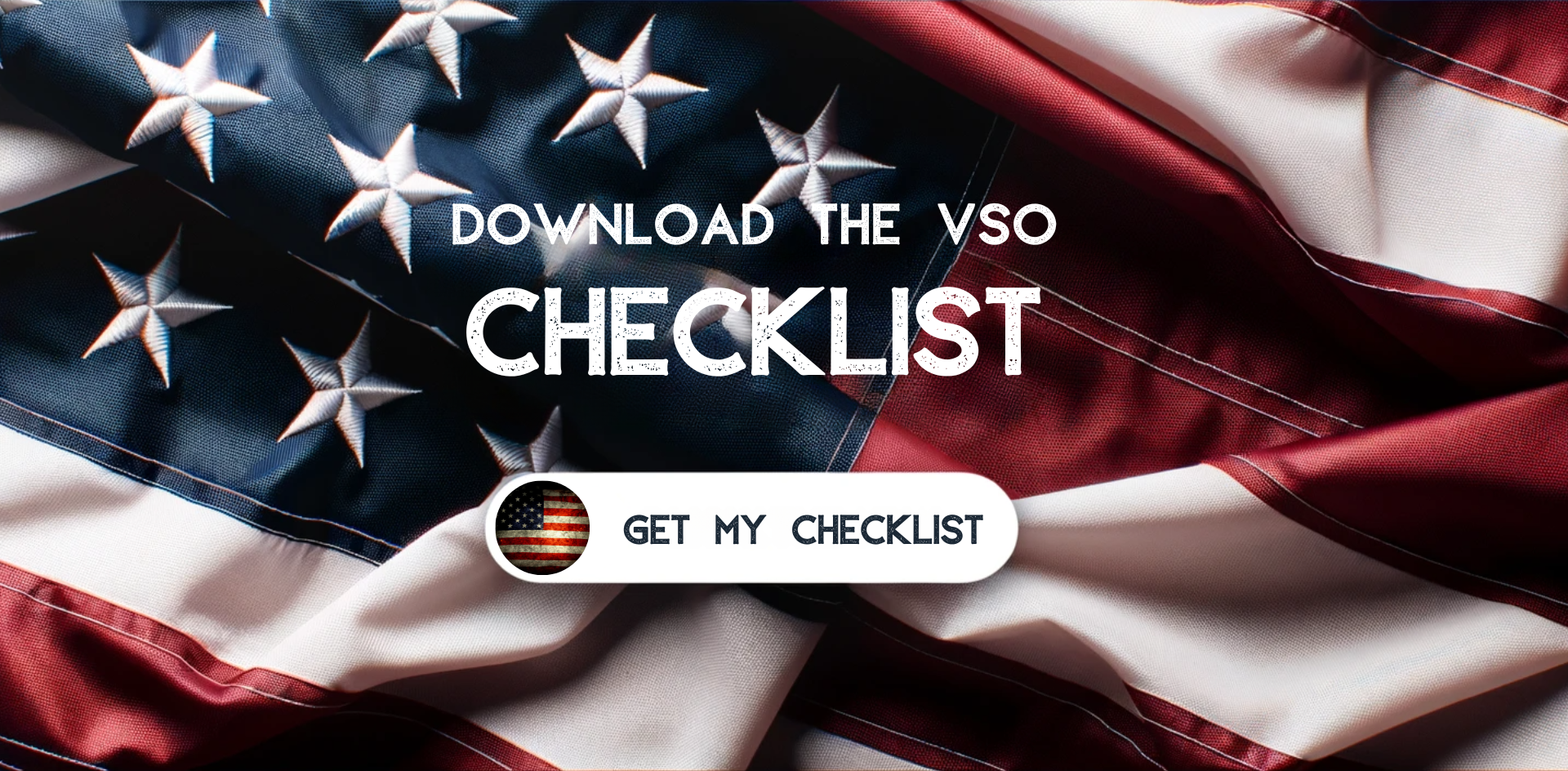A Veteran Service Officer (VSO) is someone tasked with assisting veterans and their families navigate the complex world of VA benefits and ensuring that as a veteran, you and your family receive the maximum benefits you are eligible for based on your military service.
The role and responsibilities of the veteran service officer are fairly wide ranging with regard to the process of securing your VA benefits, and they serve as a valuable and free resource for anyone who has served in the military as well as their dependents and survivors. VSOs are accredited and trained by the VA to provide this assistance.
However, there are some limits as to what your VSO can do for you when dealing with the Veterans Affairs department. Certain forms of assistance with regard to your disability claims require additional legal advice and representation that may warrant hiring a VA-accredited attorney to ensure you get the maximum benefits you and your family deserve.
The following article explores the key roles and responsibilities of the VSO and highlights the situations where hiring more qualified legal representation may be required.
Key Roles of the veteran service officer
Information & Guidance
VSOs provide veterans and their families with information about available benefits, programs, and services. They address various scenarios, such as injuries from previous wars, exposure to harmful chemicals like Agent Orange, and needs of newer veterans returning from more recent conflicts. As part of this, your veteran service officer can answer questions and advice you on the benefits available at the federal, state, country, and local level.
Claims Assistance
Your VSO can help you prepare and submit your VA benefits claims. They will also guide you towards ensuring you provide the necessary documentation to support your specific benefits claims.
Advocacy
VSOs are charted to advocate on your behalf as you navigate the complex system of veteran’s benefits. Many VSOs are also veterans themselves, and thus have personal experience dealing with the same process.
Appeals
If your claim is denied, your VSO can help you understand why this may have occurred and assist you with the appeals process.
VA Intermediary
The VSO serves as your liaison between you and the Department of Veteran’s Affails, creating cleaner communication and smoother resolution of any issues that arise during the claims process.
Document Assistance
Your VA can assist you with obtaining any needed documents during the claims process, including replacement documents should you lose your copies.
Ongoing Training
VSOs typically undergo ongoing training that keeps them updated on the latest changes to any benefits and services. This can include monthly or periodic meetings where they discuss common issues that arise during the claims processes.
Differences Between Veterans Organizations
There are many organizations that train and provide a veteran service officer, each of which has a different focus and strength. Your unique needs as a veteran can affect which VSO would be best for you. Some of the organizations that provide VSO services include:
- The American Legion: Founded in 1919, it’s one of the oldest and largest VSOs. The American Legion assists veterans, service members, and their families with a variety of services, including claims assistance.
- Disabled American Veterans (DAV): Established in 1920, DAV offers free professional assistance to veterans and their families in obtaining benefits and services.
- Veterans of Foreign Wars (VFW): Founded in 1899, VFW provides assistance to veterans in filing claims for VA disability benefits.
- Paralyzed Veterans of America (PVA): Established in 1946, PVA focuses on veterans who have experienced spinal cord injury or disease.
- Military Order of the Purple Heart: Dedicated to combat-wounded veterans, this organization provides various services, including claims assistance.
- AMVETS (American Veterans): Founded in 1944, AMVETS offers a range of services to veterans and their families, including help with claims.
- Iraq and Afghanistan Veterans of America (IAVA): This newer organization focuses on the unique needs and issues of post-9/11 veterans.
Limitations of the veteran service officer
Despite the utility of VSOs as a free resource for veterans, there are limitations to using VSOs that may warrant hiring professional legal assistance through a veterans’ law firm.
Location
Many VSOs only work with veterans in their nearby areas. For veterans who live in rural areas with limited VSO presence, you may not have access to the specific expertise for your unique needs.
Broad expertise
A veteran service officer often has knowledge of a wide range of veteran’s benefits topics such as education, burial services, employment assistance, and claims. However, this often means they are less capable at handling specific, difficult, or nuanced disability claim situations that you may face when securing your benefits.
Lack of legal training
VSOs are not licensed lawyers, and they simply do not have nor are they required to have in-depth knowledge of the legal system itself. This can prove problematic in the event of claim denial or excessive ‘red tape’ delays as you deal with the VA.
Fewer resources
Since they are free for veterans and funded primarily through taxpayers, they tend to have fewer support resources compared to private law firms with full fledged staffing to handle common issues.
Variations in competence
While most VSOs mean well and want the best for their veterans, they have not been through the rigorous legal education, testing, and training that VA-accredited lawyers receive. As such, you cannot guarantee the competence of your VSO, and you do not always have control over which VSO you work with.
When to Hire a Professional Veteran’s Attorney
If you have a disability claim that is complex or has been denied, you should speak with a veteran’s attorney as soon as possible. Generally speaking, you only pay a fee if you win your case. If you need help securing the benefits you deserve, contact Veterans Law group today.
You may also like
These related articles



